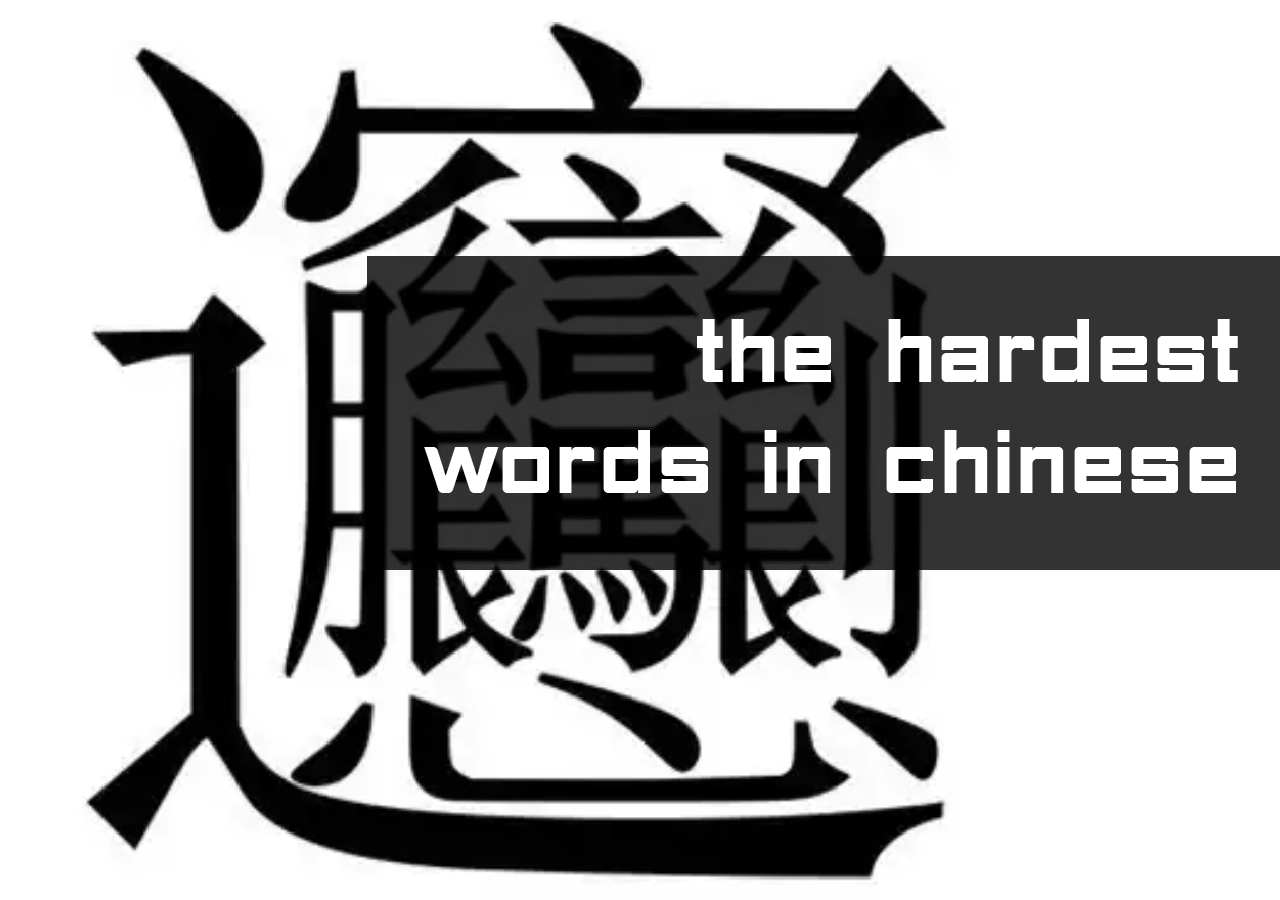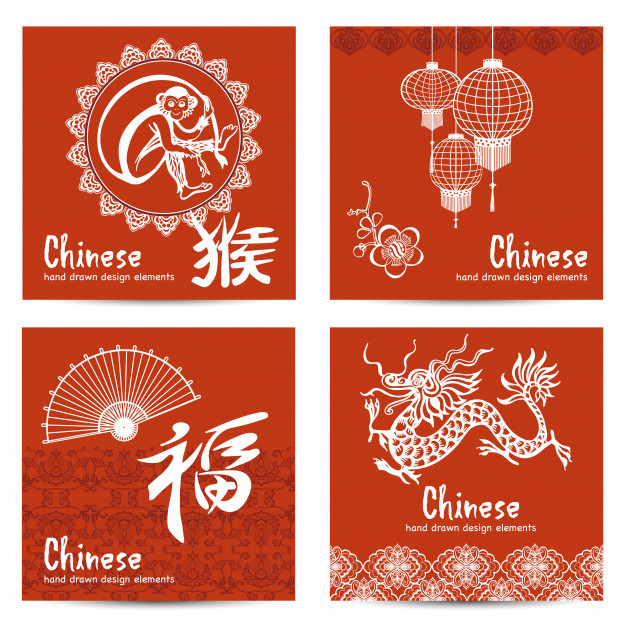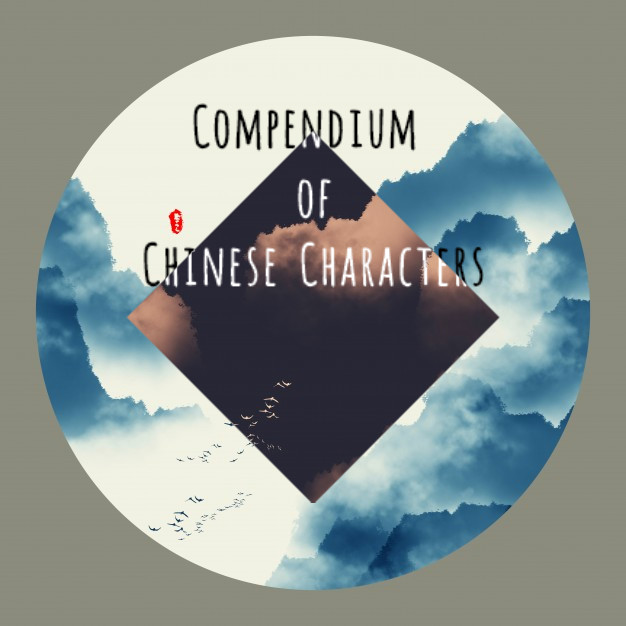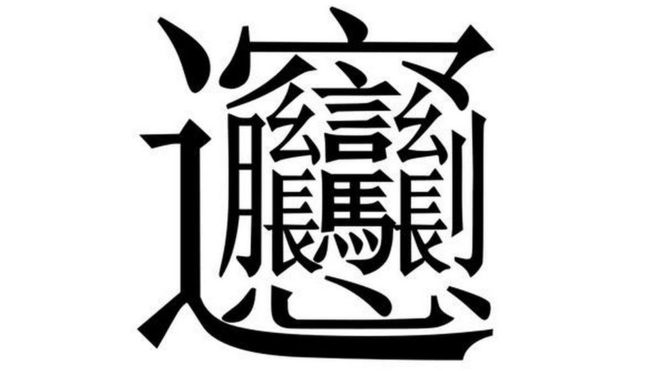The word 难 (nán) is truly versatile in Chinese. By itself, it conveys a simple concept: “difficult”, but when it’s used as a compound word, its meaning becomes much more diverse. In this article, we’ll explore the various ways of using 难 (nán) in Chinese to help you sound truly authentic when speaking the language.
Let’s get started!
Use 难 (nán) by Itself
Using 难 (nán) by itself is very simple as it directly translates to the English word “difficult” or “hard”. Here is a basic example:
- 日语很难。
Rìyǔ hěn nán.
Japanese is hard.
Use 难 (nán) in Combination with Verbs
In Chinese, you can just add a verb after 难 (nán) to express “something is hard to do or to be done”.
For example,
- 日语很难学。
Rìyǔ hěn nán xué.
Japanese is hard to learn.
Pattern
难 (nán) + verb
Let’s look at some more examples:
- 这很难说。
Zhè hěn nán shuō.
It’s hard to say.
- 这真的很难办。
Zhè zhēnde hěn nán bàn.
It’s really hard to be done.
- 这个字不难写。
Zhège zì bù nán xiě.
This character is not hard to write.
- 坏习惯非常难改。
Huài xíguàn fēicháng nán gǎi.
Bad habits are hard to change.
- 一等奖很难赢。
Yī děng jiǎng hěn nán yíng.
The first prize is hard to be won.
- 现在口罩很难买。
Xiànzài kǒuzhào hěn nán mǎi.
Face masks are hard to buy now.
- 最近工作不难找。
Zuìjìn gōngzuò bù nán zhǎo.
Jobs are not hard to find nowadays.
- 这辆车太难骑了!
Zhè liàng chē tài nán qí le!
The bike is so hard to ride!

难 (nán) in Compound Words
Some “难 (nán) + verb” combinations appear so often in Chinese that they sort of have become compound words themselves already, with a meaning on their own. (their Pinyin are often written without any space in between)
One of the most noticeable examples would be “难吃 (nánchī)”. Following the previous pattern, you would probably think that it means “something is difficult to eat”, but actually it means it doesn’t taste good (therefore “eating it” is difficult).
难 nán + 吃 chī = 难吃 nánchī
hard (to) + eat → unpleasant to eat, unsavory
And you use this type of word as an adjective in Chinese.
- 这个菜太难吃了!
Zhège cài tài nánchī le!
This dish is so unpleasant to eat!
- 难吃的菜
nánchī de cài“unpleasant-to-eat” (unsavory) dish

Obviously, this is a literal translation, in English, you would say something like “this dish is disgusting/awful” or something more specific, but this is the most common way that Chinese speakers describe food that tastes bad.
When learning Chinese, it’s always important to remember that some expressions don’t have exact equivalence in other languages, translations of the same word, or the same structure will often be different.
难 (nán) can be used in the same way for many other words. Here are some most common examples:
- 难 nán + 喝 hē = 难喝 nánhē
hard (to) + drink → unpleasant to drink, unsavory这咖啡超难喝!
Zhè kāfēi chāo nánhē!
This coffee is super disgusting! (hard to drink)
- 难 nán + 看 kàn = 难看 nánkàn
hard (to) + look at → unpleasant to look at, ugly我觉得这双鞋不难看。
Wǒ juéde zhè shuāng xié bù nánkàn.
I don’t think this pair of shoes are ugly. (hard to look at)
- 难 nán + 听 tīng = 难听 nántīng
hard (to) + listen to → unpleasant to listen to, sounds bad不要唱了!难听死了!
Búyào chàng le! nántīng sǐ le!
Stop singing! Sounds horrible! (hard to listen to)
- 难 nán + 闻 wén= 难闻 nánwén
hard (to) + sniff → unpleasant to sniff, smells bad榴莲有种难闻的味道。
Liúlián yǒu zhǒng nánwén de wèidào.
Durian has a kind of awful smell. (“hard-to-sniff” smell)
- 难 nán + 忘 wàng = 难忘 nánwàng
hard (to) forget → unforgettable, memorable这是一次难忘的旅行。
Zhè shì yí cì nánwàng de lǚxíng!
This is an unforgettable trip! (“hard-to-forget” trip)
- 难 nán + 过 guò = 难过 nánguò
hard (to) + pass → sad她看上去很难过。
Tā kànshàngqù hěn nánguò!
She looks very sad. (hard to pass)

If you already know that the meaning of 过 (guò) is to “pass”, to “cross”, then this word should make a lot of sense. Here we are essentially saying that, to her, something is difficult to get over, or in other words, she is sad or miserable about something.
Wrap up
难 (nán) is a versatile word in Chinese. By itself, it means “difficult” or “hard”. You can use it in combination with verbs to express “something is hard to do or to be done”. When it’s used as a compound word, its meaning becomes more diverse. Some common examples include 难吃 (nánchī), 难喝 (nánhē), 难看 (nánkàn), 难听 (nántīng), 难闻 (nánwén), 难忘 (nánwàng), 难过 (nánguò), etc. Slip these into your conversation and you’ll sound very Chinese.
Don’t forget to check other grammar articles on ImproveMandarin.Com’s Grammar Channel. Remember, grammar is the glue that holds the pieces of language together!
These examples may contain rude words based on your search.
These examples may contain colloquial words based on your search.
Suggestions
Reliably detect flying parts in difficult conditions
可在困难的条件下可靠地探测快速飞出的工件
Those ridiculously difficult spatial relationship questions?
那些荒谬而又困难的空间关系的问题?
Zezé is making something very difficult.
泽泽正在做一个很难的东西喔
that makes my job rather difficult.
这就让我的工作很难做了。
The Treaty endured especially difficult times politically.
该条约在政治上经历了极其艰难的时期。
This is a very difficult business.
这是一项非常艰难的事业。
Rich countries now face difficult trade-offs.
富裕的国家正在面对着困难的权衡取舍。
Color our life-a difficult situation easily and happily
颜色我们的生活-一个困难的情况下轻松和快乐
Nilfisk industrial cleaning machines are designed for particularly difficult conditions.
Nilfisk工业清洁设备专为极困难的工作条件设计。
Controlling them was getting increasingly difficult.
这使得保持足够的控制越来越困难。
This is the most difficult and challenging situation.
这也是最困难和最有争议的问题。
But replicating these successes is difficult.
但要复制这些成功是困难的。
complex menus or difficult key combinations.
复杂的菜单或困难的按键组合。
To understand this hormonal chaos is difficult.
要理解这种混乱荷尔蒙的是困难的。
That is a very difficult test.
这是一项非常艰难的考验。
But though difficult — is necessary.
但是,尽管困难的-是必要的。
My client entered the country in difficult circumstances.
我的客户进入该国 在困难的情况下。
This is an extraordinarily difficult task.
这是一项非常困难的任务。
We’ve all agonized over difficult decisions.
我们都曾为艰难的抉择苦恼过。
Luckily that is not so difficult.
幸运的是,这并不那么难。
Suggestions that contain difficult
Results: 54546. Exact: 54546. Elapsed time: 43 ms.
Diagnosing heart failure is a difficult clinical challenge.
Higher rates of reimbursement for» accommodation» in difficult missions.
对困难特派团较高的»住宿»偿还标准.
Pop might be a difficult starting point for a painter.
波普大概很难作为一名画家的起点。
一个比一个难,一个比一个重要。
This made it difficult for them to obtain medical care and other services.
这使得他们更难以获得医疗及其他服务。
But a long and difficult visa application process is hindering that growth.
然而,繁琐和过时的签证程序却阻碍了旅游业的增长。
The potential impact of the new measure is difficult to predict.
It will be the most difficult super project in railway construction history.”.
这将是铁路建筑史上难度最大的超级工程。
However, it is difficult to evaluate the effectiveness of the system.
因此较难评估系统的成效。
More suitable for the occasion difficult to replace.
这些团体面临艰困的工作条件。
North Koreans were living in very difficult conditions.
北韩人民生活在非常艰苦的条件之下。
Especially for Ekmeleddin İhsanoğlu who is a difficult to pronounce name.
特别是对于Ekmeleddinİhsanoğlu谁是一个难以发音的名字。
And actively participate in the process of political settlement of difficult hot-button international issues.
主动参与国际热点难点问题的政治解决进程。
The most difficult to understand in this world is the income tax.
世界上最难懂的事儿是所得税。
We hope everyone will respect our privacy through this difficult time.
此刻希望大家在这个困难时期尊重我们的隐私。
The process isn’t difficult, you can start right away.
这并不是一个复杂的过程,你也可以立刻开始这么做。
One of the 10 most difficult languages in the world.
世界上之最最难学的10大语言。
The problem for Darwin was that evolution is difficult to observe.
对达尔文而言,问题在于难以观察进化的过程。
In the face of difficult emotions, is part of our life.
面对艰难的情绪,是我们人生的一部分。
That would be very difficult, I would stay at home that day.
那会非常困难吧,我想到了那天我会留待家中。
It is as difficult as to predict somebody’s fate.
It is very difficult to control drug imports.
Results: 37612,
Time: 0.0299
English
—
Chinese
Chinese
—
English
Phonetic script (Hanyu Pinyin)
kùnnan
Listen to pronunciation
(Mandarin = standard Chinese without accent)
You cannot listen to the pronunciation of kunnan because your browser does not support the audio element.
You’re listening to the natural voice of a native speaker of Mandarin Chinese.
English translations
difficult, hard, difficulty,
perplexity, tough, ill, heavy going
Chinese characters:
For obtaining stroke order animations, visit the links to the individual characters below.
困难 ( kunnan / kùnnan ) is composed of these characters:
困 (kun)
, 难 (nan)
困难 ( kunnan / kùnnan ) in traditional characters
困難
Tags and additional information
(Meaning of individual characters, character components etc.)
in distress | disaster
困难 ( kunnan / kùnnan ) belongs to the 500 most common composed words in Chinese language (rank 126)
More words that mean difficult in Chinese
jiānkŭ ( 艰苦 ), shēn ( 深 )
More words that mean hard in Chinese
gāng ( 刚 ), nŭlì ( 努力 ), xīnkŭ ( 辛苦 ), yìng ( 硬 )
Report missing or erroneous translation of kunnan in English
Contact us! We always appreciate good suggestions and helpful criticism.








 nán
nán






 jiān
jiān

 zhūn
zhūn

 jiǎn
jiǎn
































































































 jí
jí

 áo
áo

















 biè
biè

 kèn
kèn






















Contents
- 1 Hardest Words In Chinese
- 1.1 Chinese characters and their numbers
- 1.2 Compendium of Chinese word list
- 1.3 The Chinese Symbol for Listening
- 1.4 Conclusion
- 1.5 Start Learning Chinese Characters Today!
- 1.5.1 Sign up our free trial to learn Mandarin and download the Chinese App for more Chinese language materials and to learn Mandarin online.
Chinese is spoken by almost 25% of the world population. But, despite its many speakers, Chinese has been labeled by some as the hardest language to learn. Any language that is foreign or is not your mother tongue can always be classified as hard. However, not all foreign languages are complicated for language learners.
A French national may find it easy to learn Italian and vice versa. However, Chinese is in a league of its own. The basis on which the Chinese language is learned and practiced is hard for both the Chinese and foreigners alike. Therefore, this article explores and exhaust the most complicated Chinese words.
The intonation of Chinese sounds is in a manner that is distinct from English. The difference in the resonance of the two languages distinguishes between English and Chinese when either of the two. They share a similarity. Because both enable expression of feelings considering the sound produced.
Chinese is therefore not hard to learn because words in Chinese make sense despite employing wrong tonal variation. The characters beget intonation in Chinese which determine to understand articulated words. However, today we are going to explore the hardest words in Chinese. This CHinese words will include the hardest Chinese word to pronounce as well as Chinese words that are commonly mispronounced.
Chinese characters and their numbers
Current data are insufficient in giving how many Chinese words in the Chinese language are there but points that, the Chinese language had 54,678 Chinese characters. The numbers are high considering, a word like listen to consists of only six characters. Currently, the official number of the characters has been reduced to around 7000 characters. The reductions were caused by constant revision of the Chinese language and its components in the Great. So luckily, the most complex Chinese character is not used as frequently as it once was and the hardest Chinese words aren’t so hard anymore.
Compendium of Chinese word list
A cocktail of complex characters makes Chinese a complicated second language to learn. The characters’ pronunciation forms a specific sound which when pronounced the wrong way, distorts even the central importance of a word. It is paramount therefore to master pronunciations for effective communication. Hence, characters are the essential components of learning Chinese.
The hardest Chinese characters in the literature include biáng, zhé and nàng. Biáng and zhé which are pronunciations of words in Chinese templates. These words in the Chinese template no longer exist in the modern standard Mandarin.
Evolution has made some of the characters obsolete, and nowadays, many are just words in Chinese template. But of great historical value. The characters’ complexity is high that to write a single character like zhé requires 64 strokes to write a simple word like scary. The complications are visible for all to see. Biáng, a simple text yet the longest character in Chinese, becomes complete only by fusing 64 strokes. If that is not hard, what is?
The Chinese Symbol for Listening
Chinese symbol for listening when looked at, as a word in Chinese template. It does not appear like a text comprising of as many as six characters namely, eye, ears, king, heart, undivided attention and you. Contemplate writing a single word using six separate components to mean a single word to insinuate active listening in English.
The Chinese characters for listening constitute, have the following underlying meanings:
- You – as the listener, one need to participate actively to ensure quality communication, failure to which the message risk getting lost or being distorted
- Eyes – you listen with your eye to maintain eye contact. Eye contact encourages speaker by staying interested on the topic. In the process, you learn a lot by observing the talker.
- Undivided Attention– commit to listening to the speaker and shun distractions from passersby
- Heart – listen with your heart and apply logic in your thinking. Listen even if you are not in agreement.
- King – accord the listener the respect of a monarch because you are not aware of the essence of what is about to be said.
- Ear – use your eyes to pay attention, listen to every single word and the mood of the situation.
Chinese like all other languages cannot stand the tests of time and remain pure like it was when it was conceived as a language. Do not be surprised to walk through Beijing; you would not help but notice words in Chinese template feature prominently, acting like banners. Conservation of the Chinese culture is experienced on everywhere around you.
Conclusion
Fusion of Chinese language with other languages to develop Chinese slang words, serve as an example that as younger generation come through. That language gets distorted to establish phrases very informal and restricted to a certain age. The number 520 is among Chinese slangs. For instance, 520 means, I love you. The pronunciations of the number and I love you are so close that they are substituted to mean the other.
As I wind up this paper, I pose, is Chinese hard to learn? My answer is simply that learning Chinese as a second language requires undivided attention. The answer to the question posed above is yes it is hard, but not as hard you might think. After all, Chinese is a language like any other.
The fact that Chinese use it is reason enough to conclude, Chinese is not as difficult as perceived. It is stereotypic to think so. To learn Chinese, you only require unwavering commitment and continuous learning.
Start Learning Chinese Characters Today!
Sign up our free trial to learn Mandarin and download the Chinese App for more Chinese language materials and to learn Mandarin online.
How to Say Difficult in Chinese SimplifiedAdvertisement
If you want to know how to say difficult in Chinese Simplified, you will find the translation here. We hope this will help you to understand Chinese Simplified better.
Here is the translation and the Chinese Simplified word for difficult:
Difficult in all languages
Cite this Entry
«Difficult in Chinese Simplified.» In Different Languages, https://www.indifferentlanguages.com/words/difficult/chinese_simplified. Accessed 13 Apr 2023.
Copy
Copied
Browse Words Alphabetically








